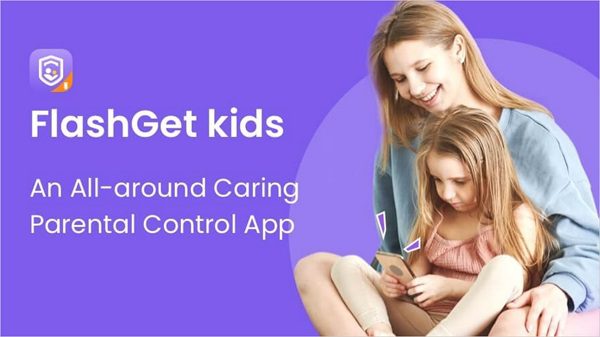The appeal of screens to our kids frequently competes with other developmental requirements essential to them, which raises the question, should parents limit screen time?
With the advent of digital devices that children start using when they are little, parents must try to balance the advantages of technology and the negative impacts of its use.
This article aims to uncover the complexities of screen time management for our kids and provide a guideline to develop healthy screen use practices.
Should parents limit screen time for kids?
While the screens provide many benefits, including the opportunity to obtain information and entertainment, questions regarding their possible bad outcome on the development of children remain.
Let’s examine the pros of restricting children’s screen time and the reasons why parents choose to give online freedom to their kids.



Why should parents limit kids’ screen time?
Parents restricting screen time would result in many advantages for their children. Here are a few:
1. For good eyes and physical health
Problem of vision in children is the most persistent impact of long times spent in front of the screens.
Over-exposure to the blue light from the screen will result in straining the eye, headache, or vision problems, which will call for more attention if not managed well.
Also, chronic screen time is alongside an inactive lifestyle. Children usually spend their time sitting in front of gadgets instead of regular physical activities and exercises.
2. More attention on educational and other activities
Students can now use their electronic devices to access this information. However, too much screen time may affect kids’ ability to concentrate.
Continual stimulation and entertainment from screens, especially for children, may adversely affect the attention span that lasts shorter as the case in reading, writing or problem-solving.
Parents can urge children to set aside more time to think and immerse themselves in nature activities by means of limiting digital time.
3. Reducing the risk of obesity
Indulgence in screens may make children drop sports and other activities helping in weight control and general fitness.
Another reason is that unconsciously nibbling on food while occupied by our devices can lead to the emergence of unfavorable feeding habits.
Instead of spending a day in front of a screen, parents should promote their children to move and live healthier.
4. Fostering social skills and emotional intelligence
Even though cyber-friendships can be a valuable source of socializing, they cannot replace real life interactions, which are essential for social skills and emotional intelligence development.
Social skills in children experience a reduction when too much time is spent on their screens. As they cannot read social signals and influence interpersonal relationships appropriately.
Parents may provide kids with this chance to explore social relationships and they may become emotionally stronger. Besides, their social skills will be enhanced.
5. Promoting creativity and imagination
Some of these electronic media might be encouraging children to play with their imagination, but over using gadgets may damage a child’s ability to utilize imagination and think creatively.
While kids tend to interact with digital content with their imagination, they miss the chance to use their own minds or participate in unsupervised play which is so important to development in intellect and creativity.
Why parents should not overly limit screen time?
Although uncontrolled and unmeasured screen time usage can certainly have negative results, we must consider the possible benefits that technology can add if it is used wisely.
1. Kids need screen time for school
Nowadays, schools and educational institutions are also using digital technology to make knowledge more accessible and widely distributed..
Students may have to study on a computer, tablet, or other device, to be able to do online research, access the learning materials and even attend virtual classes.
Tightening the orders on the number of hours children can have behind the screens may not allow them to complete their assignments and manage their schoolwork.
2. The internet is great for learning and creation
Because of the Internet as a knowledge and information platform of virtually unlimited bits, there are many learning and perception options.
Students can study what they are interested in, learn new skills, or teach themselves through the use of internet resources, movies and music, and creative software.
The limitation of screen time could be the limiting factor to the acquisition of these key learning moments for a child and curtail their mental and imaginative development in the process.
3. Teens need to socialize
Young people rely on social media and online platforms as an integral tool for their social life. Finding the balance is the most important thing, though, because teenagers need social connections, whether online or face-to-face to support their mental health and social development.
4. Preparing for the digital future
Children who start learning about and using digital technology early in their life might be more prepared to thrive in a future where humans will be entirely dependent on tech.
Overly restricting our children to the use of computers could be a negative factor in their level of digital literacy as well as proficiency, which is very necessary to any academic or professional undertaking.
5. Accessibility and convenience
Indeed, digital devices and internet resources provide children with learning difficulties and disabilities an option to have a social and learning environment different from the one they regularly go through.
They can offer preformatted educational resources complete with supplemental tools and customized educational programs tailored to individual needs.
6. Developing digital responsibility
Instead of enforcing strict rules, parents may teach their children to use technology moderately and in a balanced way.
In this way, digital etiquette and online safety can be taught to children so they can self-regulate and develop healthy habits regarding the use of technology from an early stage in life.
At what age should you limit screen time?
There is no universal age limit for when parents should restrict screening time for their children.
Nevertheless, specialists have shared recommendations that are based on available research and developmental factors that would point to the right time to limit screen time for your child.
According to the American Academy of Pediatrics (AAP), the Canadian Pediatric Society, the National Institute for Health and Care Excellence (NICE), UK and the World Health Organization (WHO):
- For children aged less than 18 months: They suggest no use of screen media except video chatting.
- For children aged 18-24 months: Parents should opt for high-quality content while watching with the children to help them understand what they are hearing.
- Children aged 2-5 years: Should have no more than an hour of screen time daily with quality programs, according to the advisory.
Most experts think that for infants younger than 2 years old, screenplay time must be limited or avoided altogether, as this is a critical phase for brain development, language acquisition, and physical activity.
Parents are expected to gradually introduce high-quality content with parental guidance and set proper time limits to ensure that children are ready to receive age-appropriate information.
What are the symptoms of too much screen time?
Although technology can act as an information hub and provide a platform for fun, extreme screen time can negatively affect the child’s health.
Parents and caregivers must understand these negative effects to ensure a healthy balance and facilitate healthy development.
1. Physical health consequences
The excessive sitting in front of electronic devices creates a higher chance for childhood obesity and other relevant health problems.It may lead to body posture disorder which manifests with joints and muscles pains.
Additionally, the blue light from those screens produces eye discomfort, headaches and even eye problems if not taken care of.
Another omnipresent problem is the disrupted sleep pattern, because the screen’s stimulation can discourage the natural sleep-wake cycle.
2. Cognitive and academic challenges
Spending too much time online makes children lose concentration and they find it hard to stay focused on things. As a result, many learning troubles occur, among them poor grades at school.
In the same direction, too much screen time impairs critical thinking. Because children are habituated to accessing information passively instead of actively participating in the process.
3. Social and emotional implications
Through increased digital media use, a child’s social and emotional development will face many impediments.
The children spend more time in front of the screen and less time with their mates. As a result, they miss a chance to practice social skills and empathy and develop their emotional intelligence.
Thus, isolation and loneliness can be problems that children experience. It’s hard for some kids to interaction or maintain friendships with others.
Problems like exposure to bullying, unsuitable content, and distorted social media cultures may negatively affect kid’s self-esteem and body image.
4. Behavioral and psychological effects
To be candid, if children stay in front of the screen too long, they may experience irritability, mood swings,.
In some cases, addiction-like behaviors will emerge. The children are infatuated with their digital devices, and whenever they are withdrawn from them, may suffer from withdrawal symptoms.
Furthermore, the child may develop wrong behavioral patterns and terrible beliefs as a result of exposure to inadequate or false content such as violence and lies.
What can we do as parents?
Parents need to strike a balance between kids’ entertainment and other activities. Do not let mobile devices harm their kid’s health, whether physical or mental. Here are several practical strategies parents can employ to effectively limit and manage their children’s screen time:
- More outdoor activities: Whether it’s family outdoor sports or camp activities for education and training, it can be effective in reducing the amount of time kids spend on TV devices and holed up on the couch.
- Regulating screen time: Limit the screen time depending on your child’s age and developmental stage. Through the application of third-party apps, limits can be specified daily or weekly and applied accordingly.
- Avoiding screens at night: Strive for a screen curfew at least a couple of hours before sleeping. The blue light from screens messes up sleep schedules hence making it harder for children to sleep.
- Be a role model: As a parent, be careful of your screen habits and become a role model for your child. Restrict the use of your own screen, particularly during family time or while interacting with your children.
To make these strategies more convenient and effective, we recommend the use of FlashGet Kids, a highly comprehensive and trustworthy parental control app.



FlashGet Kids allows you to keep tabs on your child’s app usage, limit screen time, and block inappropriate apps easily.
The app will provide extensive reports so that customizable settings can be set. It will give you peace of mind as you will be in control of your child’s internet life.
With FlashGet Kids, the relationship between screen time and other activities is maintained. This, in turn, is favorable to your child’s mental health and development.
Conclusion
The problem of limiting screen time for children is not simple. On one hand, the good things from technology have to be balanced with the bad things.
Parents can make choices regarding health, social, and education issues based on the demands and requirements of their children.
Parents can serve as the children’s alarm bell by limiting screen time and as the children’s mentors by influencing them positively.
Through the right education blend of the pros and cons, proffering imagination, and dialogue opportunities, a trustworthy basis for screen relationships can be established.

